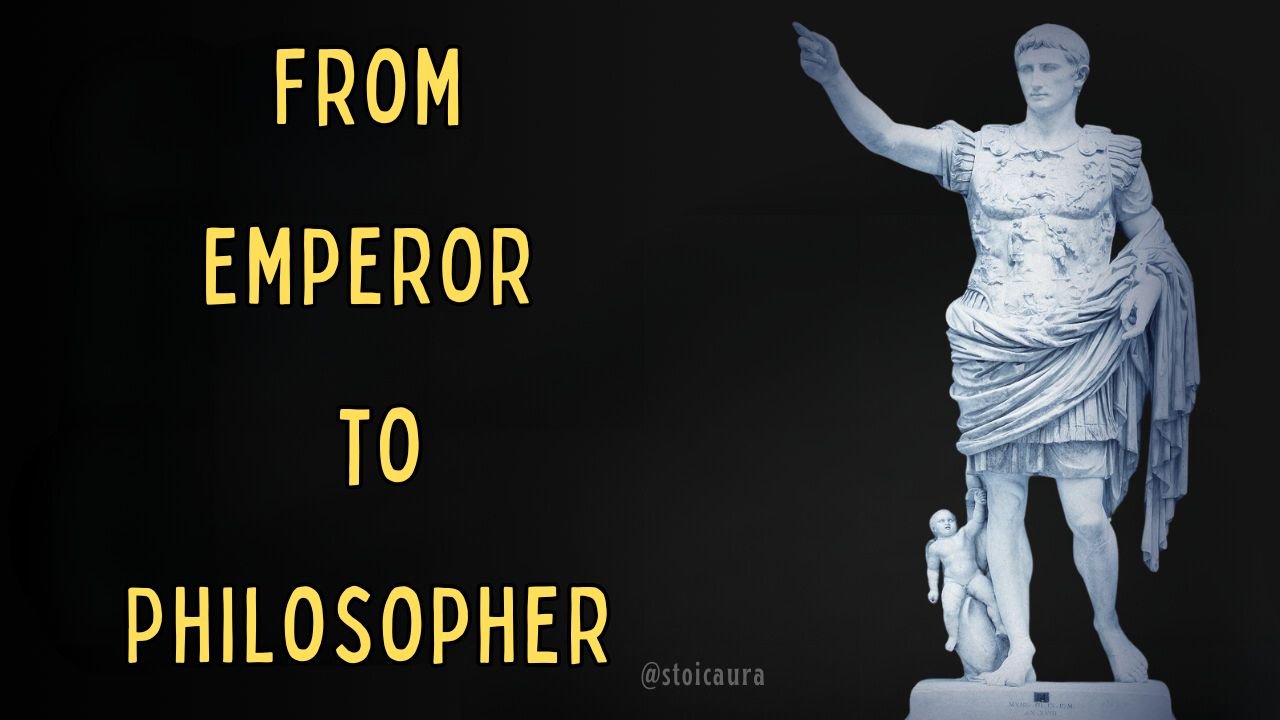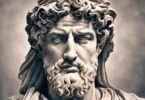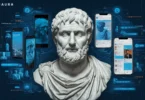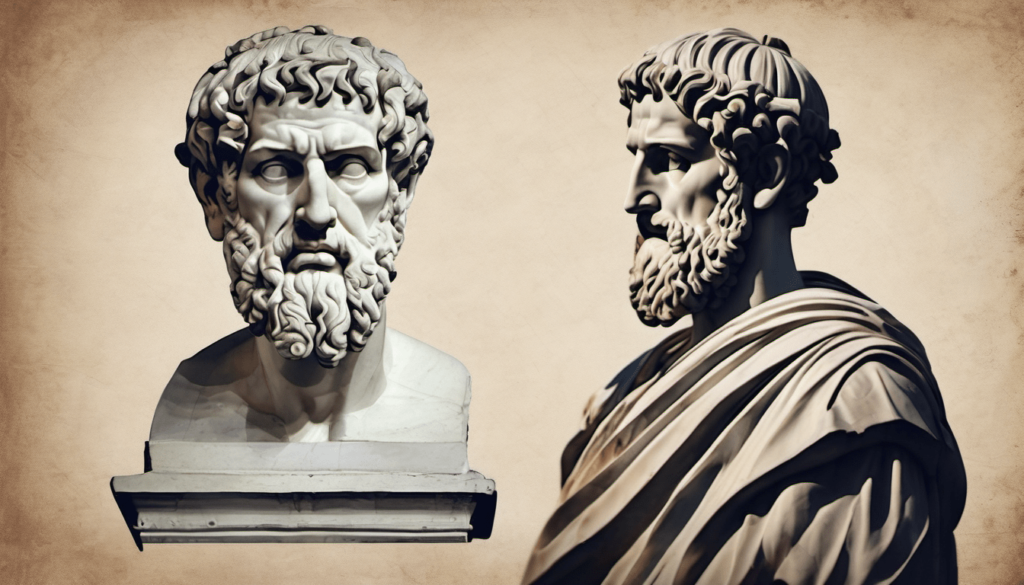
I. Introduction
A. Welcome and Introduction to the Topic
Welcome, fellow seekers of wisdom, to a journey through the fascinating transformation of a mighty ruler into a revered philosopher. In the annals of history, tales abound of leaders who wielded power with an iron fist, yet few narratives captivate the soul like the stoic journey of Rome’s noble leader. Imagine, if you will, a figure whose path from emperor to philosopher echoes the very essence of Stoicism itself – a path paved with resilience, wisdom, and a relentless pursuit of virtue.
Today, we embark on a quest to unravel the enigma surrounding this remarkable individual, whose journey embodies the core principles of Roman Stoicism. How did a mighty ruler, entrusted with the fate of an empire, navigate the tumultuous waters of power and ambition to emerge as a beacon of philosophical enlightenment? What lessons can we glean from their transformation – from wielding the scepter of authority to embracing the mantle of philosopher-king?
Join us as we delve into the depths of history to uncover the secrets of this stoic metamorphosis. Through tales of triumph and tribulation, we will explore the profound impact of Stoic philosophy on leadership, governance, and personal growth. Prepare to be inspired, challenged, and enlightened as we journey from emperor to philosopher, guided by the timeless wisdom of Rome’s noble leader.
B. Brief Overview of Stoicism in Ancient Rome
In the vibrant tapestry of ancient Rome, Stoicism emerged as a guiding beacon for both leaders and commoners, shaping the very fabric of society. At the forefront of this philosophical movement stood the Roman leader of Stoicism, a figure whose journey from power to enlightenment embodied the essence of Stoic ideals. Roman Stoicism emphasized the pursuit of virtue, inner tranquility, and harmony with nature, guiding individuals toward a life of purpose and fulfillment. Esteemed philosophers like Seneca, Epictetus, and Marcus Aurelius espoused these principles, offering timeless wisdom on navigating life’s challenges with grace and resilience. Their teachings permeated every facet of Roman Stoicism philosophy, influencing governance, ethics, and personal conduct. Today, the legacy of Roman Stoicism endures as a testament to the enduring power of philosophical wisdom, reminding us of the profound insights that continue to shape our lives.
C. Introduce the Roman Leader of Stoicism and Their Journey
Step into the world of ancient Rome and discover the captivating journey of the Roman leader of Stoicism, a towering figure whose path from governance to philosophical enlightenment continues to inspire seekers of wisdom today. At the heart of Roman Stoicism, this leader embodied the core tenets of virtue, resilience, and inner tranquility. Their exploration of roman stoicism philosophy took them from the corridors of power to the quiet contemplation of philosophical inquiry, a transformation that resonates with timeless relevance. Through their teachings and actions, they demonstrated the power of Stoic principles in navigating life’s complexities with grace and integrity. As we delve into the depths of their journey, we uncover not only a fascinating tale of personal growth but also profound insights into the human condition. Join us on this exploration of the Roman leader of Stoicism and their enduring legacy in the annals of history.
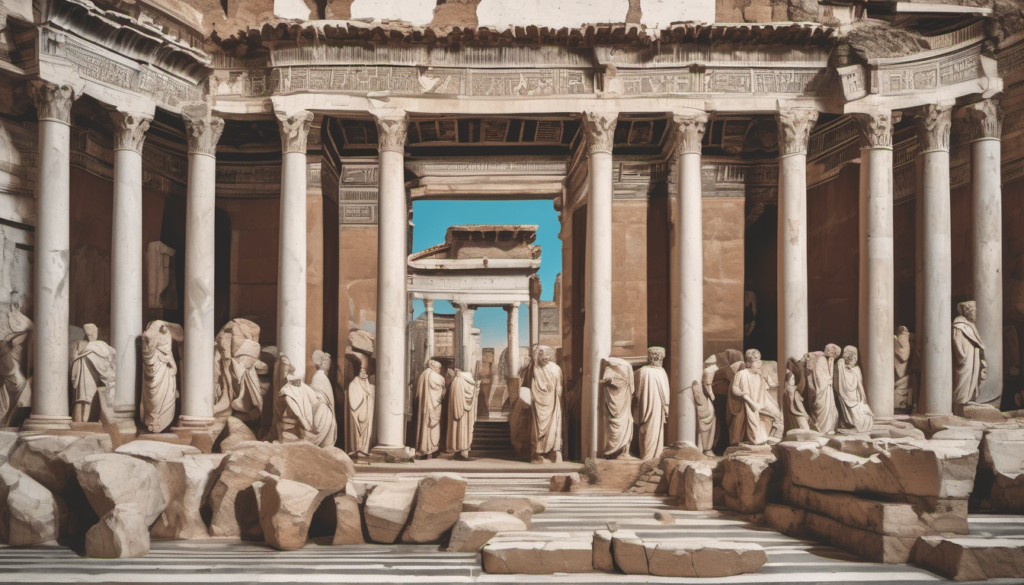
II. The Rise of the Stoic Emperor
A. Background of the Roman Leader’s Ascension to Power
Before their journey into the realms of Roman Stoicism and roman stoicism philosophy, the Roman leader of Stoicism first ascended to power amidst the tumultuous political landscape of ancient Rome. Rising through the ranks of leadership, they navigated the complexities of governance with a keen intellect and strategic acumen. Yet, beneath the veneer of political prowess, a yearning for deeper understanding simmered within them. This inner quest eventually led them to the profound teachings of Stoic philosophy, where they found solace and guidance amidst life’s trials and tribulations. Their background in leadership provided a unique perspective on the application of Stoic principles in the realm of power and influence, shaping their subsequent journey towards enlightenment. As we explore the intricacies of their ascent to power, we uncover the foundational pillars upon which their journey into Roman Stoicism was built, laying the groundwork for their transformative path ahead.
B. Introduction to Stoicism and Its Influence on the Leader’s Reign
As we delve into the legacy of the Roman leader of Stoicism, it’s essential to understand the profound influence of Roman Stoicism on their reign. Stoicism, a philosophical school that flourished in ancient Rome, emphasized the cultivation of virtue, resilience, and inner tranquility in the face of life’s adversities. For the Roman leader of Stoicism, embracing Stoic principles became not only a personal journey but also a guiding light in their governance. Their adherence to roman stoicism philosophy infused their leadership with wisdom, integrity, and a steadfast commitment to the greater good. Through Stoicism, they navigated the complexities of ruling with grace and equanimity, earning respect and admiration from both contemporaries and posterity alike. As we explore the intersection of Stoicism and leadership in their reign, we uncover valuable insights into the enduring power of philosophical wisdom in shaping history.
C. Examination of Stoic Principles Embedded in Governance
In examining the governance of the Roman leader of Stoicism, we uncover a profound integration of Roman Stoicism principles into their leadership style. Rooted in roman stoicism philosophy, their approach to governance was marked by a commitment to virtue, rationality, and moral integrity. Embracing Stoic ideals such as resilience in the face of adversity and the pursuit of the common good, they steered their administration with wisdom and equanimity. Their adherence to Stoic virtues provided a guiding compass in decision-making, fostering a sense of justice, temperance, and magnanimity in their rule. Through the lens of Stoicism, they viewed leadership not merely as a position of power but as a solemn duty to uphold principles of justice and righteousness. Thus, their reign exemplifies the transformative potential of philosophical wisdom in shaping governance and leaving a lasting legacy of ethical leadership.
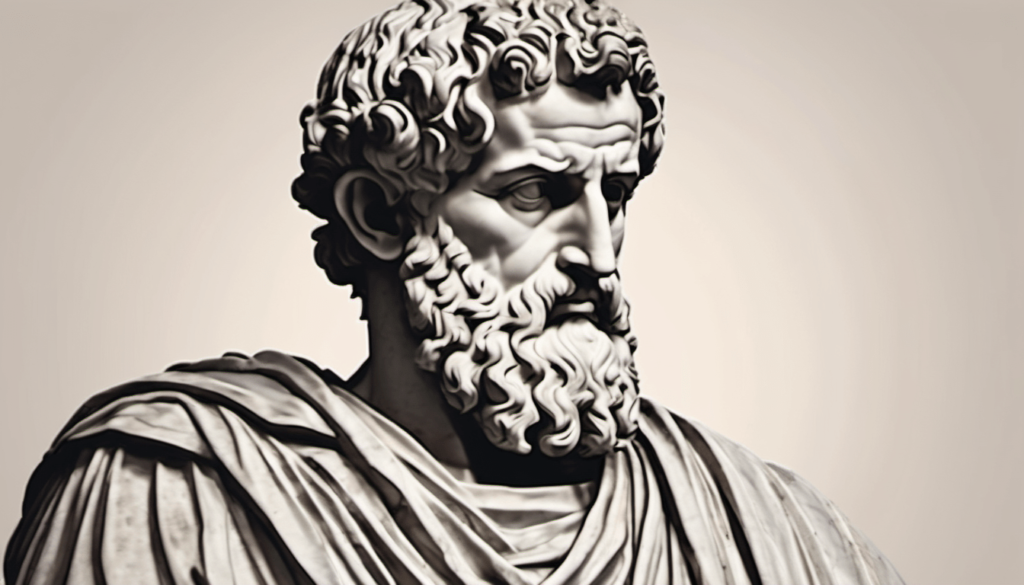
III. Transition to Philosopher-King
A. The Roman Leader’s Personal Transformation and Embrace of Stoicism
The journey of the Roman leader of Stoicism is a testament to the transformative power of Roman Stoicism. Initially, they might have been a ruler driven by ambition and worldly pursuits. However, upon encountering the tenets of roman stoicism philosophy, they underwent a profound personal transformation. Embracing Stoic principles of virtue, self-discipline, and acceptance of fate, they embarked on a journey of inner growth and enlightenment. Through introspection and philosophical contemplation, they cultivated a resilient mindset, finding strength in adversity and serenity in the face of life’s challenges. Their embrace of Stoicism not only influenced their personal demeanor but also shaped their approach to leadership, guiding them to govern with wisdom, fairness, and compassion. Thus, their journey from a mere ruler to a Stoic philosopher-king exemplifies the profound impact of philosophy on individual character and governance.
B. Exploration of Stoic Philosophical Works and Teachings
In delving into the realm of Roman Stoicism, one cannot overlook the profound philosophical works and teachings that have shaped the ideology of the Roman leader of Stoicism. These texts offer invaluable insights into the principles and practices of Roman Stoicism philosophy, providing a roadmap for leading a life of virtue and resilience. From the timeless wisdom of Marcus Aurelius’s “Meditations” to the practical advice of Epictetus’s “Enchiridion,” these Stoic masters impart timeless lessons on how to navigate the complexities of existence with grace and dignity. Through their writings, they encourage individuals to cultivate inner strength, maintain equanimity in the face of adversity, and embrace the transient nature of life. By exploring these Roman Stoicism works and teachings, one can gain a deeper understanding of the philosophical underpinnings that guided the Roman leader of Stoicism on their transformative journey.
C. Impact of Stoic Philosophy on the Leader’s Decision-Making and Leadership Style
The influence of Roman Stoicism philosophy on the Roman leader of Stoicism is unmistakable, shaping not only their personal beliefs but also their decision-making and leadership style. Embracing Stoic principles such as resilience, virtue, and self-discipline, the Roman leader of Stoicism approached governance with a sense of duty and moral integrity. Stoicism taught them to focus on what is within their control, to endure challenges with equanimity, and to prioritize the well-being of their subjects above personal gain. By integrating Stoic philosophy into their leadership, the Roman leader of Stoicism fostered a culture of rationality, fairness, and ethical conduct within their domain. This commitment to Stoic ideals not only guided their own actions but also set a powerful example for others to emulate, leaving a lasting legacy of wisdom and virtue in the annals of history.
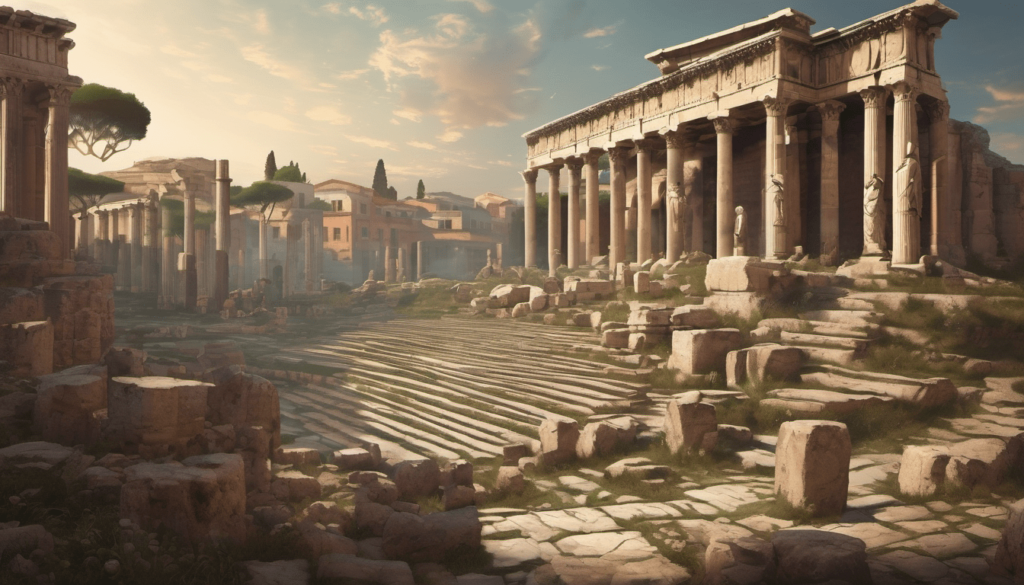
IV. Legacy and Lessons of the Stoic Journey
A. Reflection on the Roman Leader’s Contribution to Stoicism
In retrospect, the Roman leader of Stoicism emerges not only as a political figure but also as a torchbearer of Roman Stoicism philosophy. Their journey from ruler to philosopher exemplifies the transformative power of Stoic principles. By embracing Roman Stoicism and incorporating its teachings into their governance, the Roman leader of Stoicism left an indelible mark on history. Their commitment to virtue, resilience, and rationality served as a beacon of inspiration for generations to come. Through their actions and leadership, they demonstrated the practical application of Stoic ideals in the pursuit of a just and harmonious society. As we reflect on their contributions, it becomes evident that the Roman leader of Stoicism not only embodied the essence of Roman Stoicism but also played a pivotal role in shaping its legacy, ensuring that its wisdom continues to resonate in the modern world.
B. Examination of the Leader’s Enduring Influence on Roman Stoicism Philosophy
The profound impact of the Roman leader of Stoicism on Roman Stoicism philosophy is evident in the enduring legacy they have left behind. Their steadfast commitment to Stoic principles and their embodiment of Roman Stoicism ideals have continued to inspire philosophers, leaders, and individuals alike throughout the ages. By integrating Stoic philosophy into their governance and personal life, the Roman leader of Stoicism not only shaped the course of history but also contributed to the evolution of Stoicism as a philosophical movement. Their teachings and example serve as a guiding light for those seeking wisdom, resilience, and moral clarity in the face of life’s challenges. In examining the Roman leader of Stoicism‘s enduring influence, we gain insight into the profound connection between leadership, philosophy, and the pursuit of virtue, highlighting the timeless relevance of Stoic principles in navigating the complexities of the human experience.
C. Relevance of Stoic Principles in Modern Life and Leadership
In today’s fast-paced world, the enduring wisdom of Roman Stoicism philosophy and the teachings of the Roman leader of Stoicism continue to resonate profoundly. As individuals navigate the complexities of modern life and leadership, Stoic principles offer invaluable guidance and perspective. By embracing concepts such as resilience, virtue, and the acceptance of what lies beyond our control, individuals can cultivate a sense of inner strength and peace amidst adversity. Moreover, leaders who embody Stoic ideals inspire trust, foster resilience among their teams, and make sound, ethical decisions rooted in reason and virtue. From Silicon Valley executives to world leaders, many have turned to Stoic philosophy as a blueprint for effective leadership and personal fulfillment. Thus, the relevance of Roman Stoicism philosophy in modern life and leadership underscores its timeless wisdom and enduring impact on individuals and society as a whole.
V. Conclusion
A. Recap of the Stoic Journey of Rome’s Noble Leader
The Roman leader of Stoicism embarked on a remarkable journey, embracing the timeless principles of Roman Stoicism philosophy and applying them to both personal and leadership domains. From their ascent to power to the transformational embrace of Stoic teachings, their story serves as a testament to the enduring impact of philosophy on human life. Through the lens of Stoicism, they navigated challenges with grace, embodying virtues like resilience, wisdom, and moral integrity. Their leadership style, deeply rooted in Stoic principles, fostered a culture of ethical decision-making, resilience, and personal growth among their followers. As they reflected on their legacy, the Roman leader of Stoicism recognized the profound influence of Stoic philosophy on their life and leadership journey, leaving behind a lasting legacy that continues to inspire individuals to embrace Stoic virtues and principles in their own lives.
B. Call to Action for Embracing Stoic Principles in Daily Life
Embracing Roman Stoicism philosophy in our daily lives offers a transformative path to personal growth and fulfillment. Inspired by the timeless wisdom of the Roman leader of Stoicism, we can integrate Stoic principles into our routines, fostering resilience, clarity of mind, and a deeper sense of purpose. By practicing Roman Stoicism philosophy, we cultivate virtues such as courage, wisdom, and self-discipline, enabling us to navigate life’s challenges with grace and resilience. Whether it’s adopting the Stoic practice of daily reflection or embracing the philosophy’s emphasis on focusing on what is within our control, incorporating Stoic principles into our daily lives empowers us to lead more meaningful and fulfilling lives. Let us heed the lessons of Roman Stoicism philosophy and embark on a journey of self-discovery and personal growth, embracing its principles to navigate life’s highs and lows with resilience and wisdom.
C. Encouragement for Further Exploration of Roman Stoicism Philosophy
As we delve into the rich tapestry of Roman Stoicism philosophy, we uncover timeless wisdom and profound insights that resonate deeply with the human experience. The journey initiated by the Roman leader of Stoicism offers an invitation to explore the depths of our own consciousness and cultivate virtues that enrich our lives. Beyond this introductory exploration, there lies a vast landscape of Roman Stoicism philosophy waiting to be discovered and embraced. Through further study and contemplation, we can gain deeper insights into the principles and practices that underpin this ancient philosophy. By immersing ourselves in the teachings of Roman Stoicism, we equip ourselves with invaluable tools for navigating the complexities of modern life with clarity, resilience, and purpose. Let us continue to explore the depths of Roman Stoicism philosophy, drawing inspiration from its timeless wisdom to lead lives of meaning, fulfillment, and virtue.
FAQs
1. What is Roman Stoicism?
Roman Stoicism refers to the philosophical school of thought that originated in ancient Rome and was heavily influenced by its Greek predecessor. It emphasizes principles such as virtue, rationality, and resilience in facing life’s challenges.
2. Who were the key figures in Roman Stoicism?
Key figures in Roman Stoicism include philosophers such as Seneca, Marcus Aurelius, and Epictetus, who made significant contributions to the development and popularization of Stoic philosophy during the Roman Empire.
3. What are the core principles of Roman Stoicism?
The core principles of Roman Stoicism include living in accordance with nature, practicing virtue, maintaining inner tranquility, and accepting the things we cannot control. These principles aim to cultivate a resilient and virtuous character.
4. How does Roman Stoicism influence modern life?
Roman Stoicism continues to influence modern life by offering practical wisdom and guidance on how to navigate challenges, cultivate resilience, and lead a meaningful and virtuous life in today’s world.
5. What is the significance of the Roman leader of Stoicism?
The Roman leader of Stoicism, such as Marcus Aurelius, played a crucial role in embodying and promoting Stoic principles through their leadership and writings, shaping the course of Stoic philosophy and its impact on society.
6. Can anyone practice Roman Stoicism?
Yes, Roman Stoicism is accessible to anyone interested in cultivating virtues such as wisdom, courage, justice, and temperance. Its principles can be applied to various aspects of life, regardless of one’s background or beliefs.
7. How can I learn more about Roman Stoicism?
To learn more about Roman Stoicism, you can explore ancient Stoic texts, modern interpretations of Stoic philosophy, join Stoic communities, or seek guidance from contemporary Stoic practitioners and scholars.

